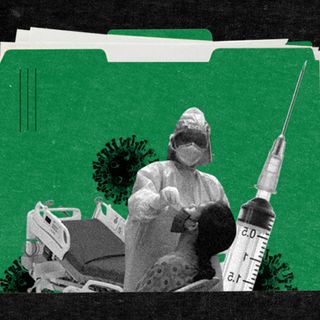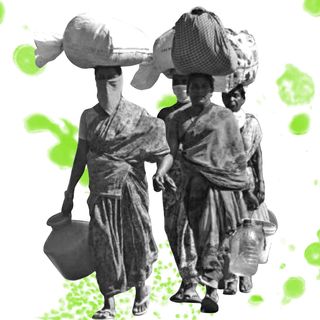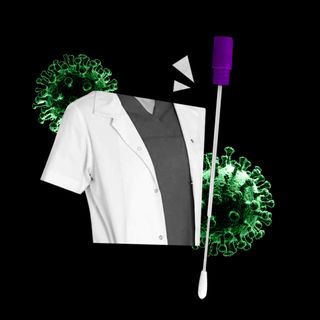Vinod, a 32-year-old worker at Sumanahalli Crematorium in Bengaluru, shares what his day looks like on the frontlines of the pandemic. This is the seventh installment of a series that looks at the toll of a worsening Covid19 crisis from multiple perspectives within the healthcare system.
I work at an electric crematorium in Bangalore. My work is to burn bodies — bodies of dead Covid19 patients.
We are seeing at least 25-30 bodies daily. Two, three months back, there were fewer bodies: sometimes 7, sometimes 10. Even before that, in last March, the bodies who had died because of Covid were still below 10. The number has now increased. Bodies come from both private and government hospitals — but these days it looks like there are more Covid19 deaths in government hospitals.
Right now, there are at least 40 pyres burning in the crematorium. We give tokens to at least 25 ambulances, which are lined up outside the grounds. They are waiting because there is no space.
I work with four other people. It is generally 8 a.m. to 8 p.m., but we are logging in more hours these days. Today, we will work till at least 3 a.m. Work easily crosses 10-12 hours every day. The government has given us PPE and masks to wear. We give them information about the bodies, and they issue death certificates; each certificate has an ID and makes note of whether someone was Covid-positive or -negative.
The process is the same: admitting dead bodies on the ground, making related entries. Anyone who comes has to do an entry. It gets a little tiresome sometimes. Everyone gets a token and has to wait even now — it takes at least 45 minutes to one hour to burn one body. So depending on the number of bodies in a day, the work depends on that. There is no space left; we don’t know how things will continue.
I live with my family: my wife and two children. I have been working in a crematorium for the last six years. The work feels the same sometimes. It was scary when corona first came — we didn’t understand what was happening last year. It still feels like that right now — we don’t know what we are doing or what we should do.
There is a lot of sadness, given how cases are rising. We are also very tired now.
This interview has been condensed and edited for clarity. As told to Saumya Kalia.




